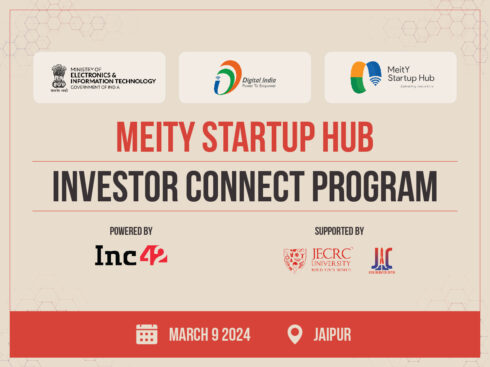
SUMMARY
Recently, the Reserve Bank of India included the GST Network as a financial information provider under the account aggregator framework
The account aggregator framework is a data-sharing protocol between financial institutions to seamlessly share user information such as credit score
The RBI’s move will allow institutions to lend to MSMEs based on their projected cash flow and meet the credit-starved sector’s working capital requirements, according to fintech startups
Digital lenders believe that the inclusion of GST Network (GSTN) as a financial information provider (FIP) under the account aggregator framework is a good move that will yield the desired results. The step will give an impetus to fintech startups, particularly those operating in the MSME space, they said.
With an aim to ease the credit flow to micro, small and medium enterprises (MSMEs), the Reserve Bank of India, in a notification dated November 23, said that the ‘Master Direction – Non-Banking Financial Company – Account Aggregator’ has been amended to include GSTN as FIP.
The account aggregator framework is a data-sharing protocol between financial institutions such as banks, insurance companies, NBFCs, and others to seamlessly share user information such as credit scores. It will allow financial institutions to easily sanction loans, without a long-drawn process involving multiple agencies.
The RBI’s master direction provides a framework for registration and operations as an account aggregator. With the amendments, the GST returns filed by MSMEs will now be a source of financial data for account aggregators.
According to the RBI, the Department of Revenue will be the regulator for this specific purpose, while GST Returns viz. form GSTR-1 and form GSTR-3B will be the financial information.
Big Opportunity, But Stiff Challenges
The MSME businesses are usually overlooked by traditional finance institutions as they associate greater risk with MSMEs. Assessing credit potential and creditworthiness, coupled with a lack of collaterals, is also a major handicap.
In rural and small towns, traditionally the credit to the MSMEs comes from unorganised channels. Borrowing from acquaintances, money lenders and business associates has led to credit being unaffordable, and sometimes exploitative too.
Amit Mande, chief revenue officer of UGRO Capital, a BSE-listed small business lending platform, said, “This has been primarily because of the lack of financial data and discipline that is required to credit assess a customer.”
He said lending organisations focused on lending to micro-enterprises in Tier-II towns have to walk the extra mile to understand the customers and assess their income and cash flows which are not reflected in banking and financials to extend credit to this segment. “This is a very immersive process and few lenders have walked the path.”
The rising digitisation across sectors in the country has unlocked many opportunities for MSMEs and there has been an upsurge in demand for working capital from MSMEs. However, the sector remains credit-starved due to a host of reasons. The regular flow of financial data has been a long-standing issue for MSMEs.
The need for formal credit in rural India presents tremendous opportunities for fintech startups.
“The size of the unmet demand with nearly 65 million MSMEs in India is nearly $300 Bn. Even if you take one-third of that, (it is) $100 Bn of unmet credit demand. The opportunity is huge,” said Dilip Modi, founder of Spice Money, a rural fintech company.
RBI Policy Change To Improve Credit Flows To MSMEs
Pointing out the credibility of the GST data, digital lenders welcomed the RBI’s decision as it would enable them to lend money to MSMEs based on their projected cash flows.
“GSTN (Goods and Services Tax Network) data will give additional comfort to the lenders because while one can fudge the financial books one can’t play around with the GST data,” said Monish Anand, CEO & founder of MyShubhLife, a digital-lending and full-stack financial services platform.
According to Mande, there is a need to move away from financial data-backed and collateral-backed credit assessment to cash flow-backed credit assessment, i.e., lending based on projected future cash flows.
He said UGRO Capital overlays the assessed cash flows to its proprietary risk model, GRO SCORE, which assesses customers on their banking, bureau and GST behaviour to extend credit to the last mile.
The RBI policy will enable seamless real-time authentication of GST, Avinash Godkhindi, MD & CEO of Zaggle said, adding that “lenders can review this information on the fly before providing a loan”.
The move will also be beneficial for MSMEs as small business owners can now build a credit history, backed with reliable data, which will give them access to cheaper institutional credit.
“This RBI policy is a boon for the MSME fraternity as it will facilitate cash flow-based lending to them,” Godkhindi said.
Ftcash, which aims to make credit available to micro-merchants and small businesses, views the RBI policy as “powerful”. Sanjeev Chandak, cofounder & CEO of ftcash, said, “Financial institutions would now be able to assess the creditworthiness of small business owners through verifiable data.”
According to Chandak, the RBI’s move will also help small businesses avoid private money lenders and their usurious interest rates.
A credit history and verifiable cash flow projection will also help MSMEs needing capital take loans of larger amounts from financial institutions.
“Access to institutional credit eventually helps business owners to grow and scale up and we have seen this already happen in the developed economies,” Chandak said.


























